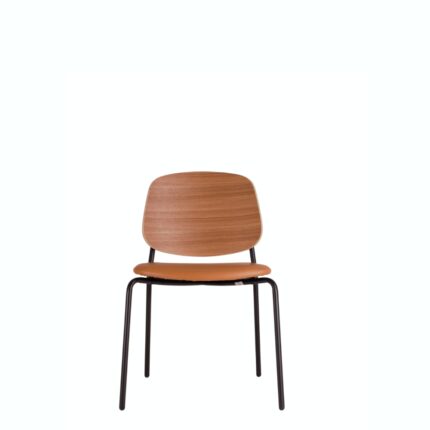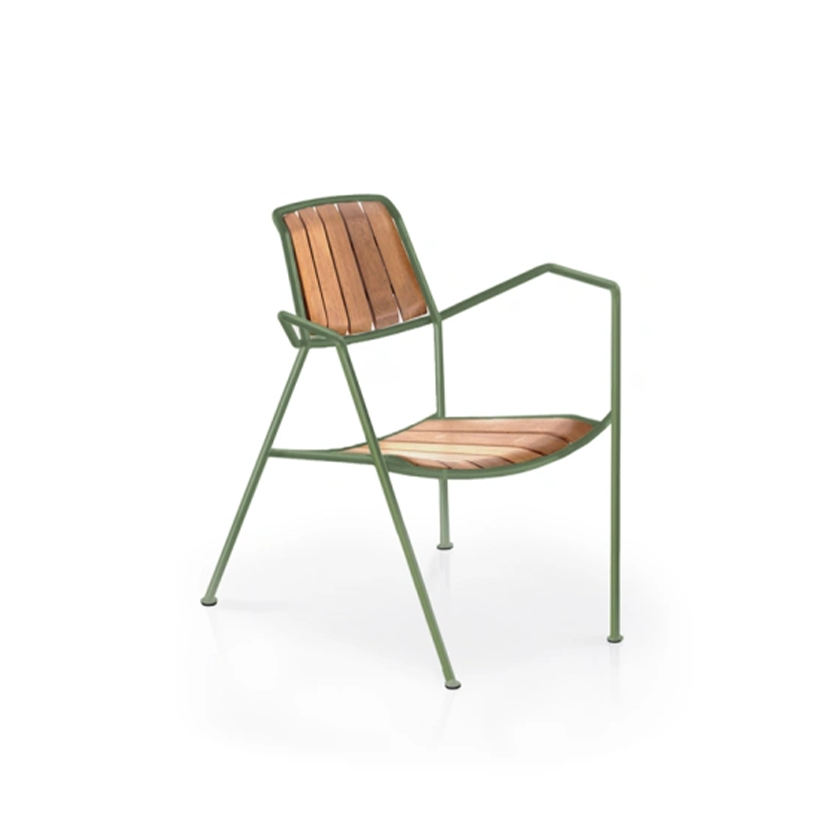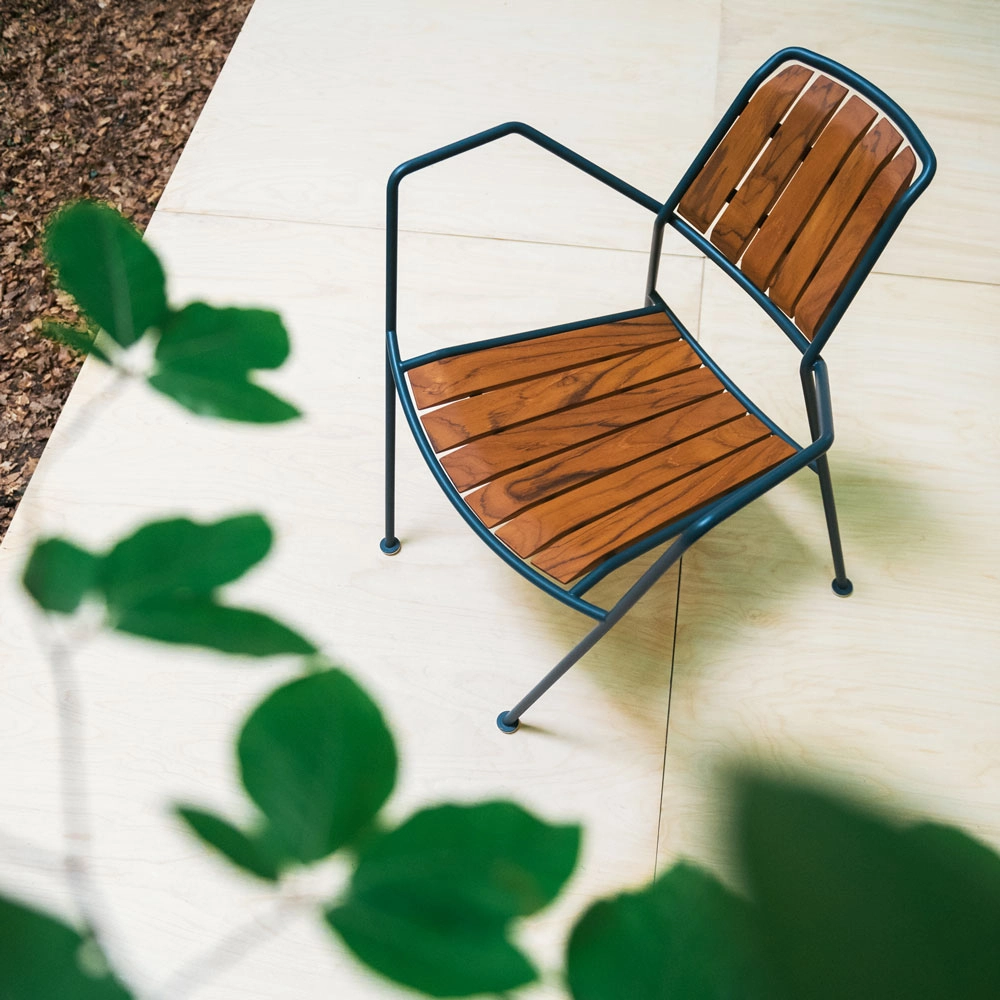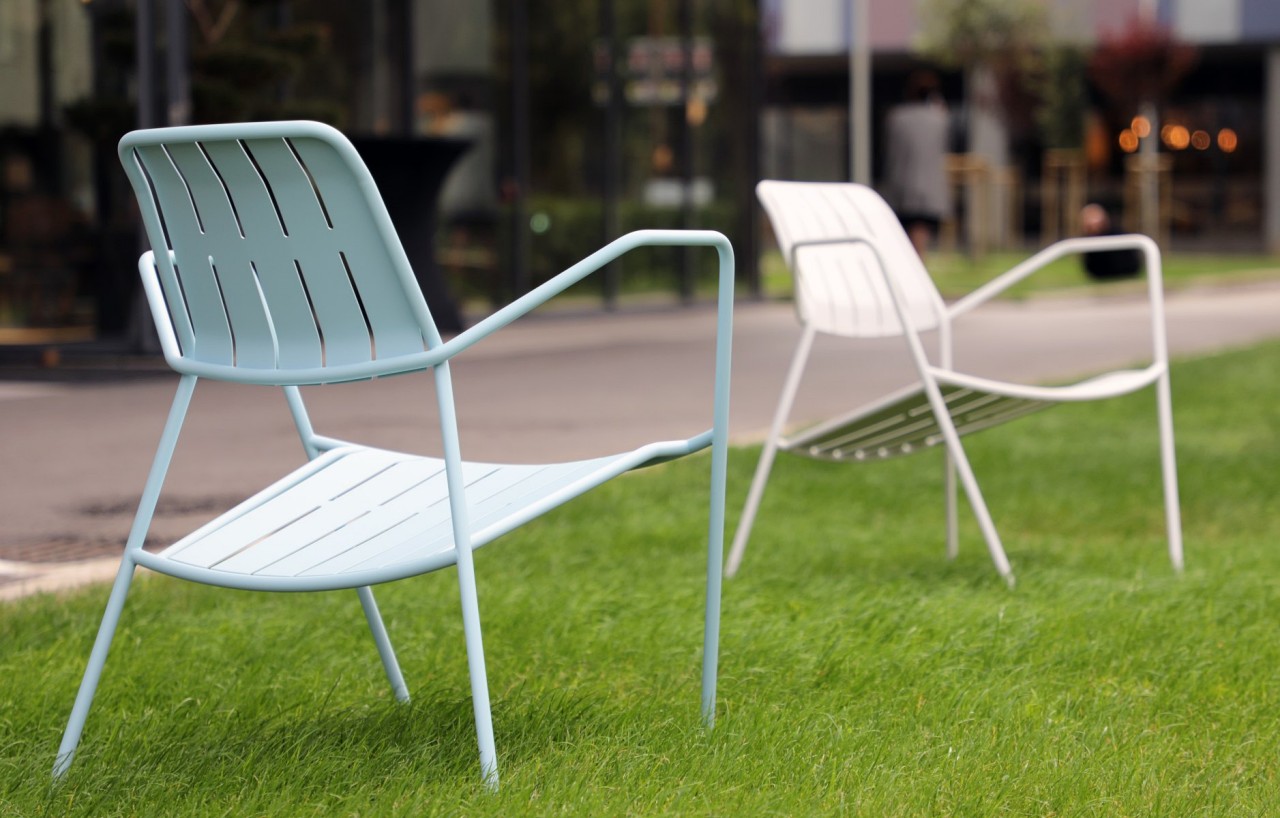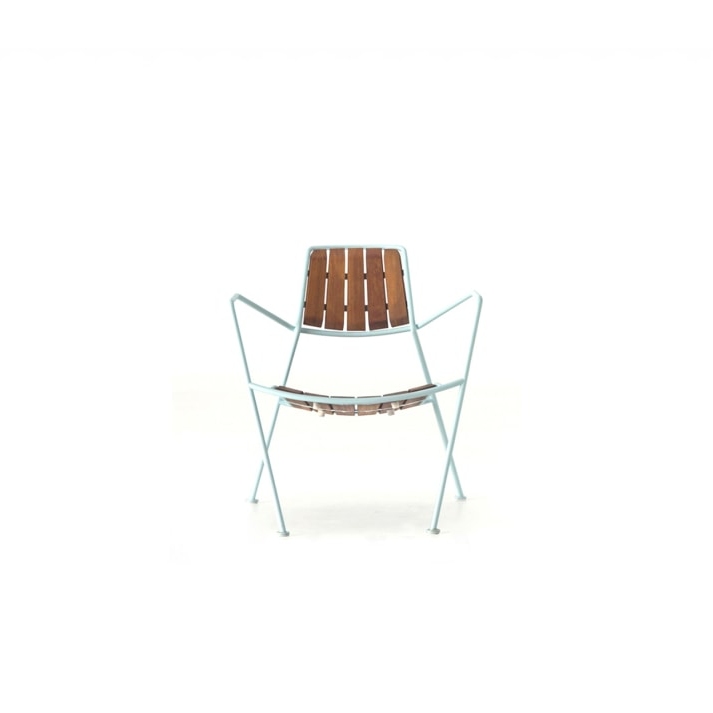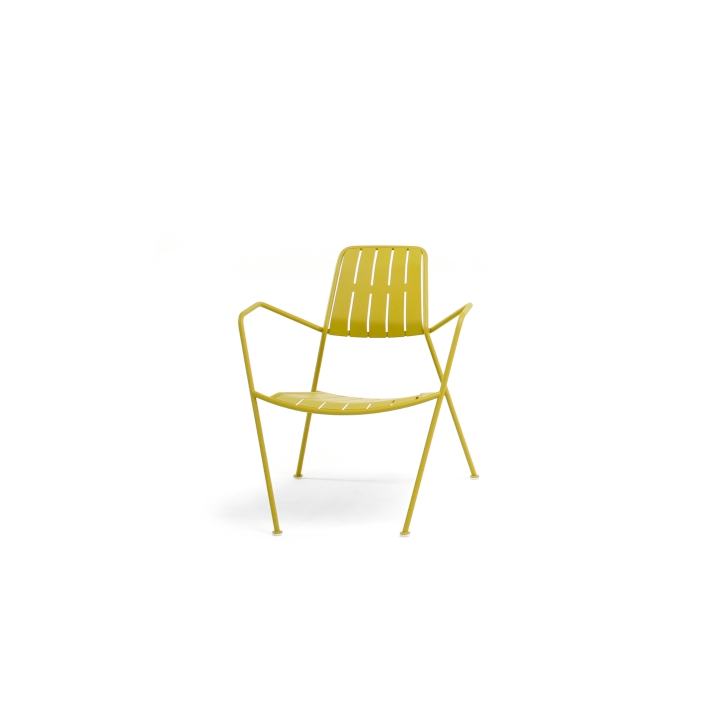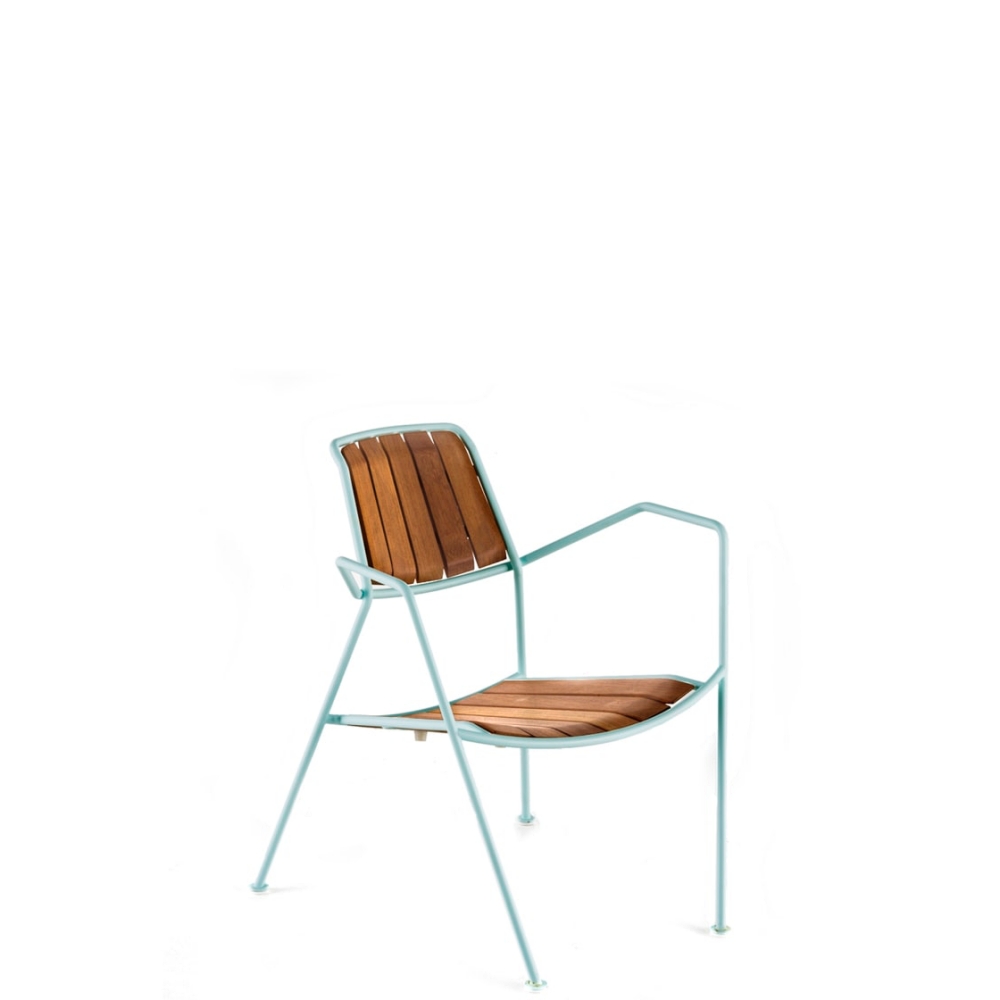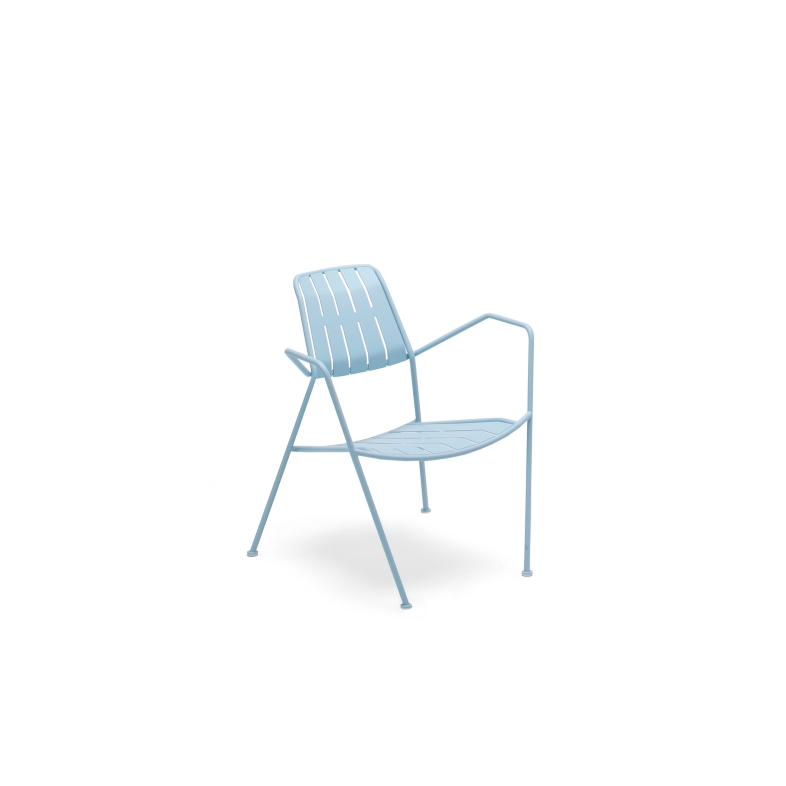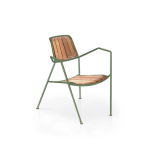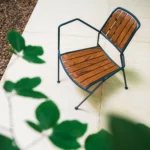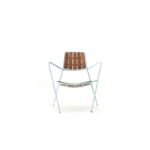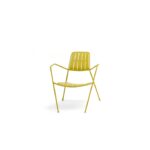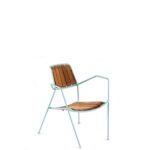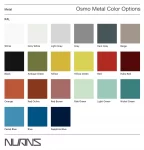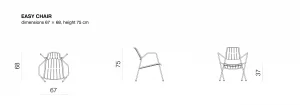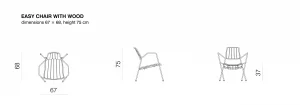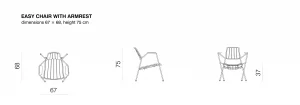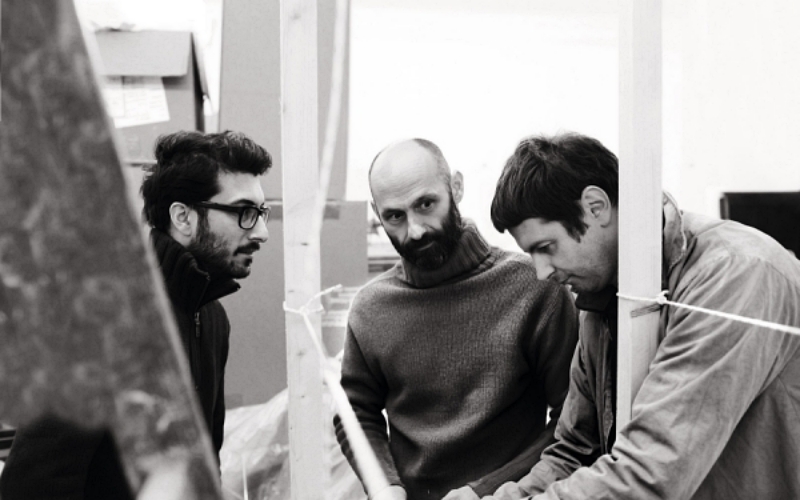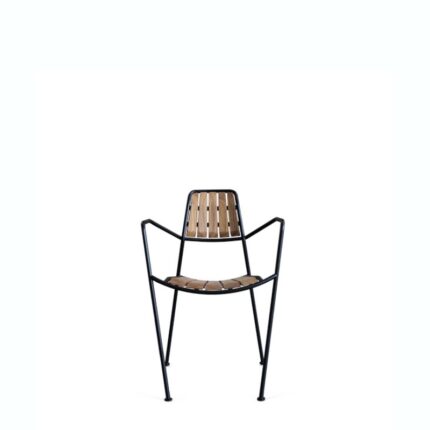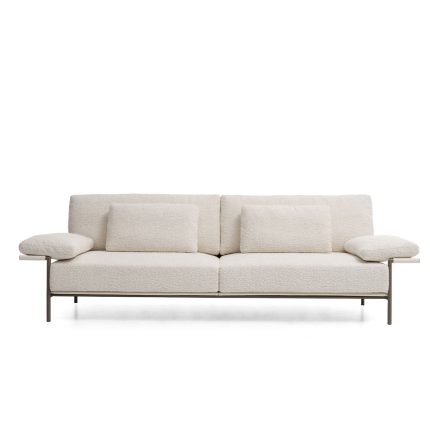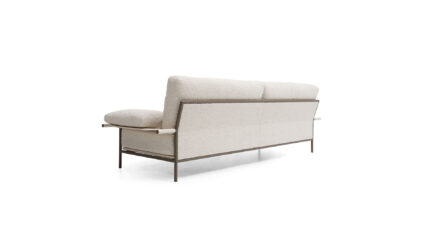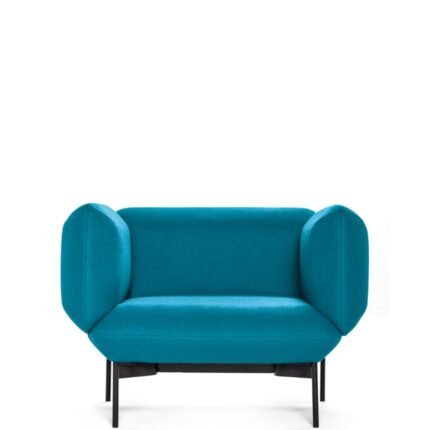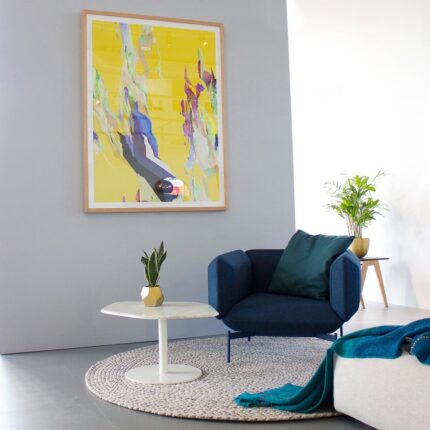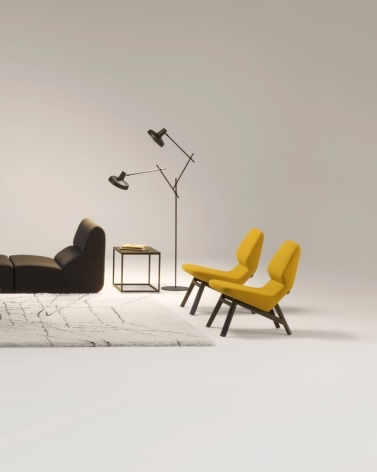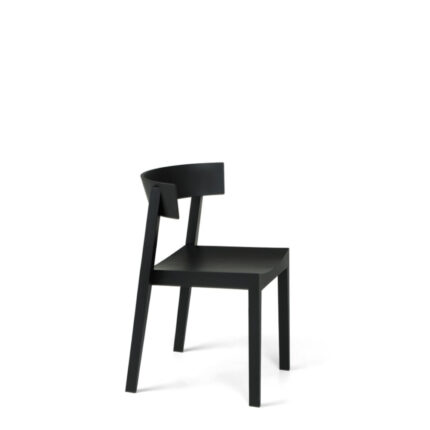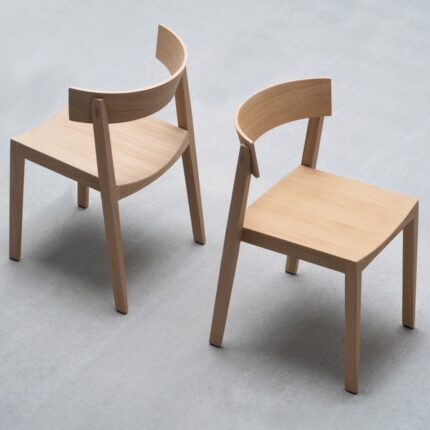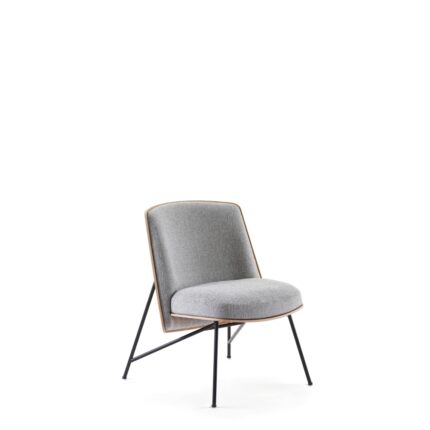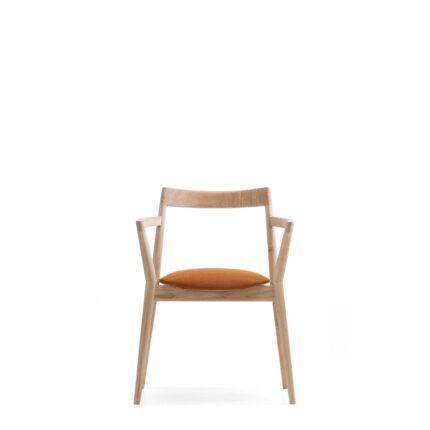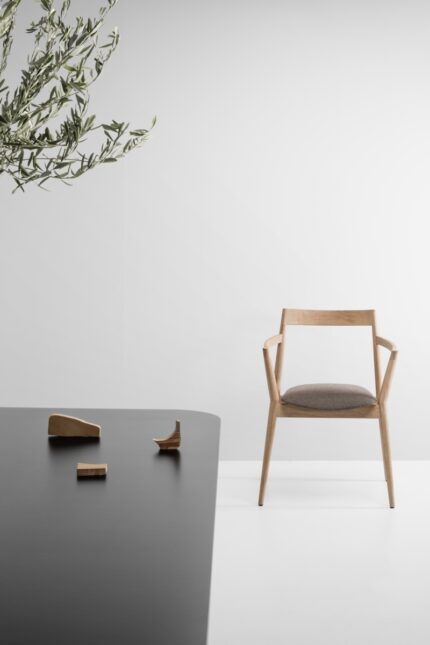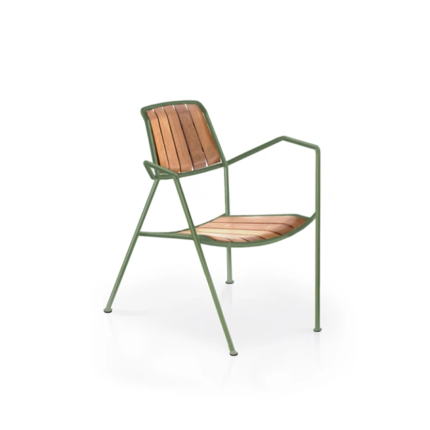PRODUCT INFORMATION
Osmo Outdoor Lounge Chair | By Numen / For Use
Osmo is a lounge chair developed on the classic typology of chairs for terraces of hotels and restaurants. The steel structure combined with a wooden seat and backrest provides an optimal equilibrium of comfort and rigidity required in the demanding context of extensive use in the exterior exposed to sun and seawater. A bent tube structure of expressive geometry defines the frame into which the seat and backrest made of wooden slates are inserted into. The characteristic inclination of front legs combined with an extremely wide, fractured armrest, results in a biomorph appearance reminiscent of an insectoid robot from SF movies.
Osmo Collection Booklet
Technical info
| Seat & backrest | metal or inox plate + powder coating / solid wood + outdoor oil |
|---|---|
| Base | metal or inox tube Ø16 mm + powder coating |
| Armrests | solid wood + outdoor oil |
| Cushion | waterproof fabric (removable) |
Color Options
Metal Colors
Wood Finish Options
Dimensions
Osmo Lounge Chair
Osmo Lounge Chair Wood
Osmo Lounge Chair w/ Wood Armrest
Prostoria Oslo collection is made to order. Lead times 14-16 weeks.
Numen / For Use
Numen / For Use is a design collective led by product designers Sven Jonke, Christoph Katzler, and Nikola Radeljković. Over the past 20 years, Numen/For Use has been active globally in the fields of industrial and spatial design, scenography, and conceptual art. They nourish very rational aesthetics that could be categorized as functional minimalism. Their designs for Prostoria include the Polygon and Toggle easy chairs, Oblique, Oblikant Trifidae collections, Bik and Dobra chairs, Revolve, Layout, Absent, Segment, Klaster, Combine and Fade sofas, Avet low table, and the outdoor collections Osmo and Jugo.
Prostoria
We tend to perceive furniture as something abstract, created on designers’ desks and then produced, branded, and placed on the market by companies with different statuses and reputations. In fact, relations inside the contemporary globalized furniture industry are becoming more and more fragmented with less and less opportunity for complete dedication to synergies and collaborations… Prostoria, as a young company whose catalog already comprises some new icons such as the Polygon armchair and the Revolve transformable sofa, stands as an example of a different and more traditional approach based on the evolution from the local factuality and logical clustering of all actors involved in the production process.
The rapid development of Prostoria, formerly known as Kvadra, a company which has come a long way, from “starting from zero” to positioning itself as the leader and promoter of new ideas in only a few years’ time, is a story about the reintroduction of continuity both in Croatia and Central Europe, a region with vital but insufficiently recognized design scene and remarkable tradition and knowledge of the furniture industry. Those elements served as latent potentials that provided grounds for continuation and had to be activated.
Since the beginning, Prostoria has been developing an integrative approach, functioning as a collaboration platform that nourishes and stimulates a continuous exchange of knowledge and experience between all the actors participating in the production of furniture. A dynamic workshop ambiance has been created offering opportunities for designers to explore their ideas in excellent conditions and bring them to the highest level of design, functionality, and technological artisanship. Many products have been developed over long periods of time surpassing a number of iterations until reaching their final form, which would be impossible without adequate support combining contemporary technology and meticulous craftsmanship and handwork of the highest quality. Predominantly local materials are used, especially solid wood, and most of the production takes place within the company itself or in collaboration with local cooperatives.
While the company’s catalog also offers furniture based on tested models, Prostoria shows strategic and even passionate dedication to research-based design, convinced that authenticity has its place on the market but presents a special challenge in times when it seems almost impossible to create truly innovative and fresh concepts. For that reason, Prostoria’s social responsibility and specific position have to be observed as a contribution to the evolution of design and readiness to take risks in order to reach new values for the benefit of users and the culture. Thus, Prostoria stands as a project inside which designers grow together with the company on the grounds of mutual trust and shared goals.


